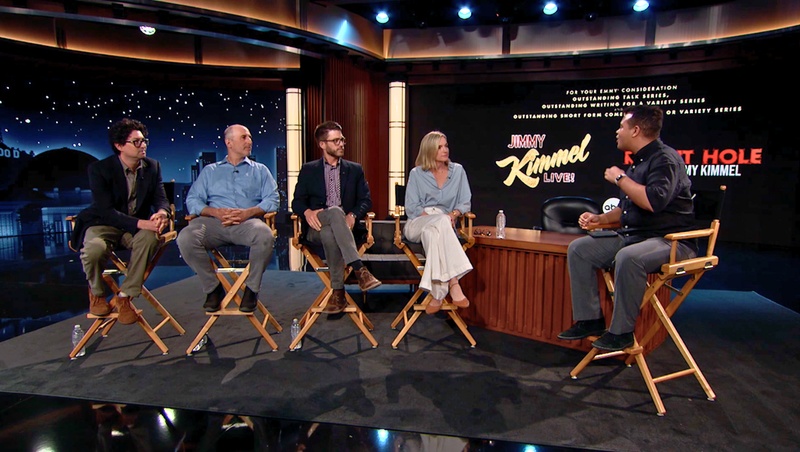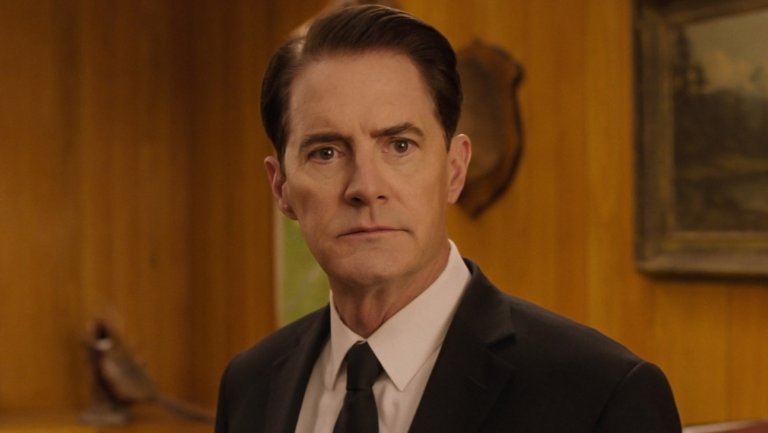For director Maggie Kang (“The Lego Ninjago Movie”), “KPop: Demon Hunters,” from Netflix and Sony Pictures Animation, represents the fulfillment of a 20-year desire to make an animated movie about Korean culture. But what began as an exploration of demonology evolved into an explosive mashup of action and K-pop.
The film follows the popular K-pop group Huntrix, comprised of Rumi (Arden Cho), Mira (May Hong), and Zoey (Ji-young Yoo), who lead double lives as demon hunters. Up against the supernatural force of demons controlled by the fiery Gwi-Ma (Byung-hun Lee), the Huntrix suddenly find themselves competing with a boy band called Saja Boys, who are secret demons led by Jinu (Ahn Hyo-seop). There’s even a spicy twist that connects Jinu and Rumi that’s worthy of any K-drama and allows “KPop Demon Hunters” to tackle questions of dual identities and dark sides.
“I was drawn to demonology and thought that [it] would be very visually impactful to feature in mainstream media,” Kang told IndieWire. “And so that naturally led to demon hunters and a group of really badass superhero women. I felt like I wasn’t seeing women who were too relatable for me in this superhero market that is so saturated.”
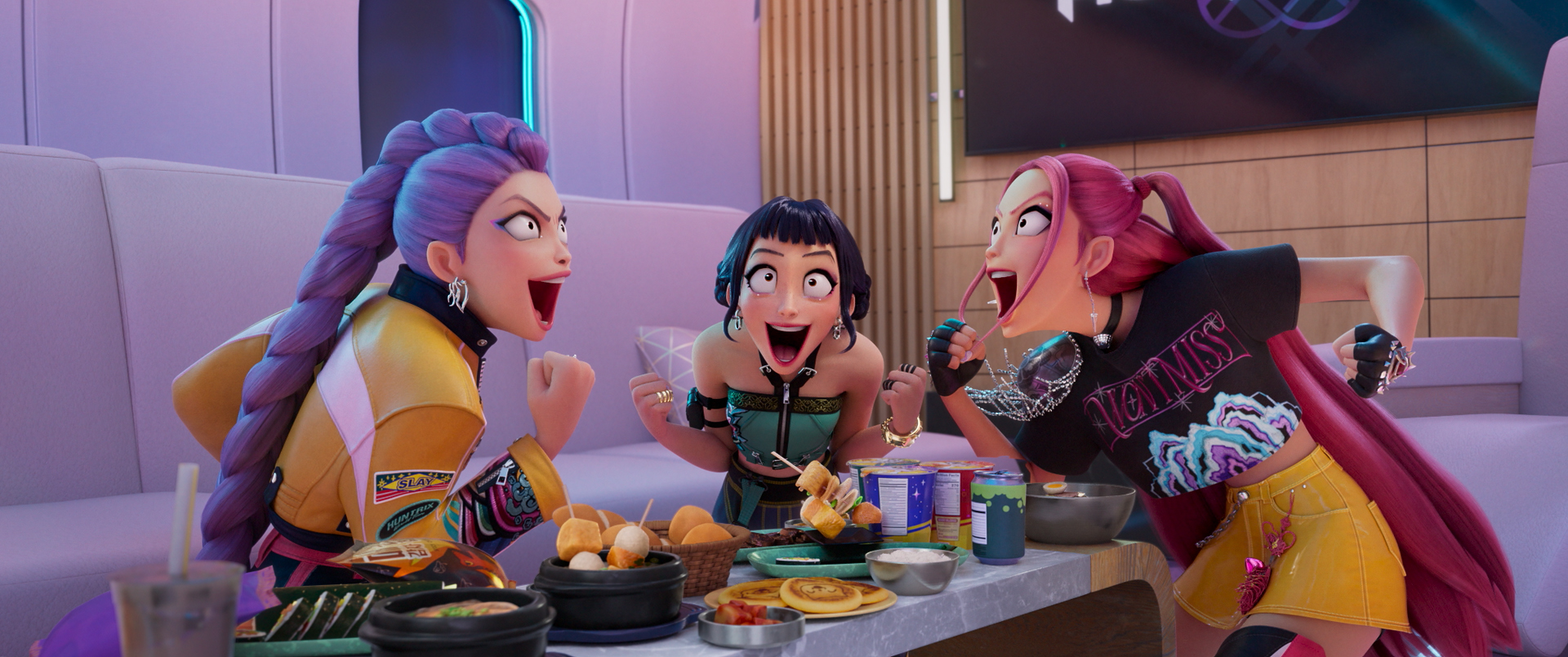
Kang wanted to see women who were funny and goofy and unafraid to look stupid and ugly, gorging themselves on snacks before a concert or a fight. There was also the opportunity to have musical fighting sequences and K-pop concerts, where the performances have to be believable enough to attract such a large fanbase.
“That set the tone for what the movie could be,” she added. “And then the K-Pop of it all actually was folded in last because demon hunting is usually done in secret. And so these girls needed a public face and K-Pop felt Korean and would bring spectacle and scale to everything, and obviously made it a musical, and it served as a really good pitching point.”
Wrapping it all around fun musical action, though, allowed for an opportunity to delve into anime-influenced CG, courtesy of Sony Pictures Imageworks (the “Spider-Verse” franchise). This included eye-popping colors and 2D-like effects as the backdrop for the glam Huntrix to fight an assortment of iconic demons (goblins, zombies, shapeshifters, and messengers of death in black robes).
“You wanna find some unique visual elements for your film that are unique to animation, and you need to let the film help tell you what those are,” fellow director Chris Appelhans (“Wish Dragon”) told IndieWire. “And so this idea that Maggie had, representing women with more range, was really helpful in pulling from this wonderful language of goofy, cheapie aesthetic that some anime do.”
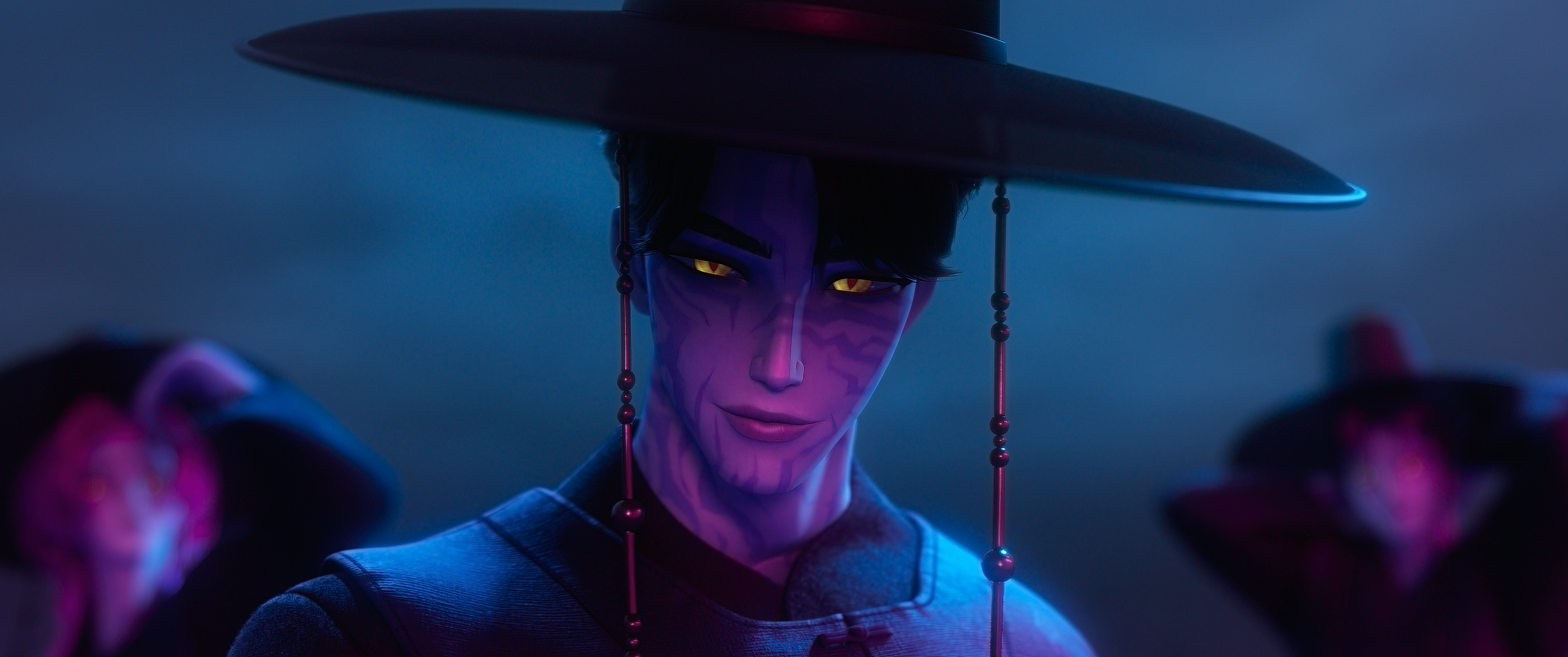
They took inspiration from K-dramas, where the actresses reveal a range of comedy and melodrama, music videos for the fighting, concert lighting, and editorial photography. But it was tough to model and rig to capture high glam or hyper-ridiculous facial expressions. “To work in 3D, it didn’t need to feel like a momentary illustration, but more of a claymation approach,” added Appelhans. “As soon as we committed to that, it felt ok to those kinds of boundaries. We’re not trying to do 2D shorthand, we’re trying to keep it all feeling dimensional, whatever the characters do. And then we got into the action stuff and that was inspired by some great camera blocking and shortening that they do in anime.”
But pulling off musical action sequences was hard, especially since they had to wait for the songs to be completed to finish the animation. But they were able to do cuts and storyboards to the tempos of the songs. The highlights include “Golden,” “What It Sounds Like,” and “Takedown,” the lead single from the soundtrack (performed by Jeongyeon, Jihyo, and Chaeyoung of TWICE).
The first fight was actually one of the last ones that they animated. It occurs on a plane during a frantic rush to get to their concert, accompanied by a rap musical beat. “ I think we always talked about it being kind of like ‘Baby Driver,’ with the fight punches on the beat,” Kang said. “ So, as soon as the music kicks in, we change lighting, all these other things happen. We just wanted the girls to have fun and kick butt to the beat.”
The train fight against a flowing mass of zombie demons provided a darker contrast. “The number of enemies was really a technical challenge,” Appelhans said. “And the animators did some prototyping with blocking that in with a simple volume that would later be almost decorated with the bodies of all the zombies.
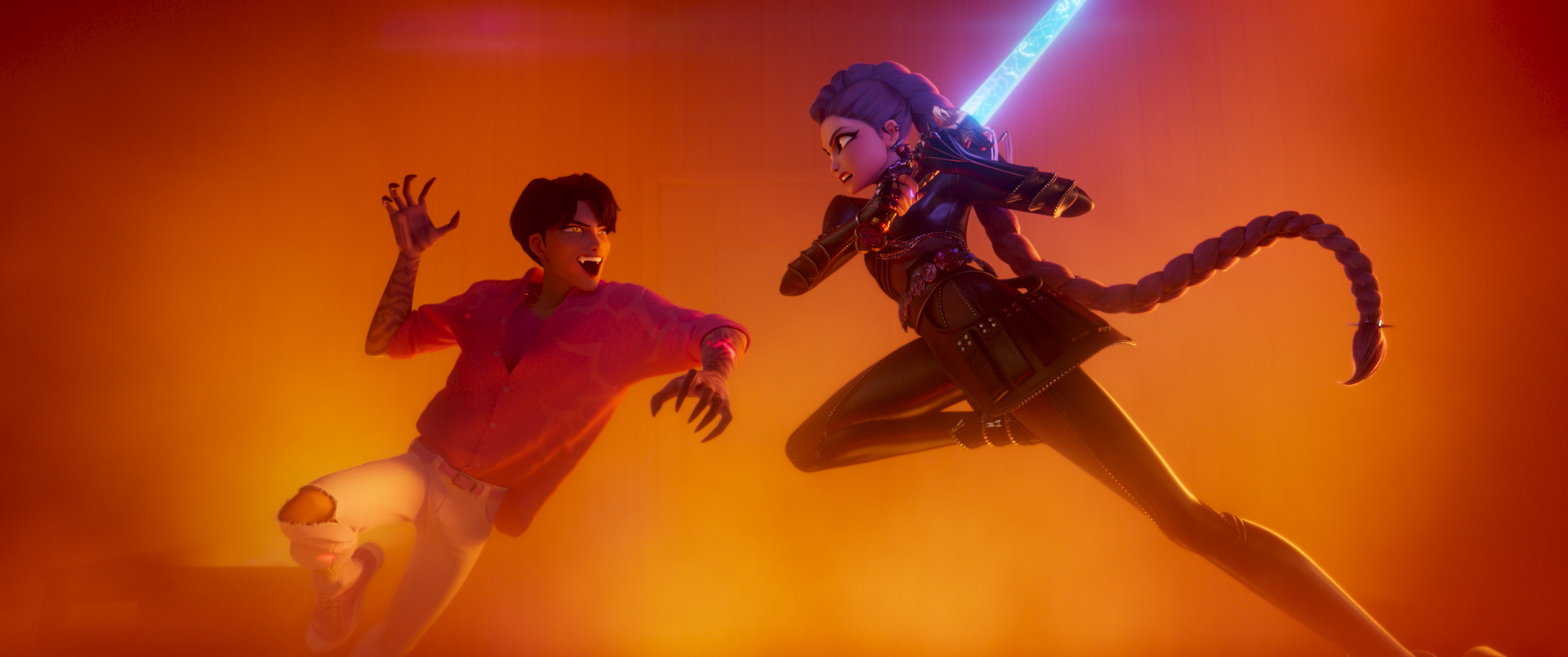
“But the other really fun thing about that sequence was trying to keep the camera relationship with the characters and the performance they’re giving. Trying to find the right angles so you’re oriented, but also find the right illusion of speed, going like 4,000 miles an hour in order to get the background to do what it does.
Animating “Takedown,” a really toxic boyfriend break-up song, was also difficult to animate. “We really wanted to feature a scene where the girls wrote a song in the part of the movie where they’re having to juggle so much,” added Kang. “And they’re getting overwhelmed because the Saja Boys are gaining traction, and Rumi is feeling different things about herself and what the hunters represent.”
As in live-action, they shot a lot of coverage and lined them all up in search of happy accidents, which is not customary in animation. “You have to draw it all first and plan it out, so it was a mind bender,” added Appelhans. “ But it was exciting to do a sequence that’s about building a song, telling a story, and also cutting on beats and having action and dialogue happen.”
“KPop Demon Hunters” is now streaming on Netflix.

